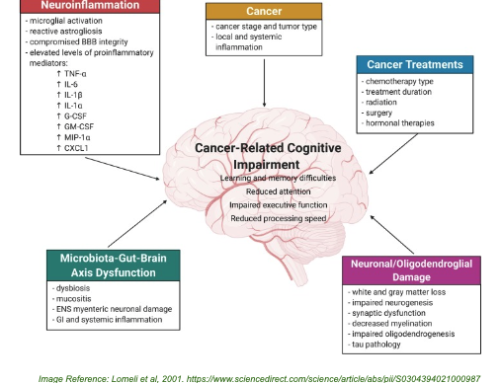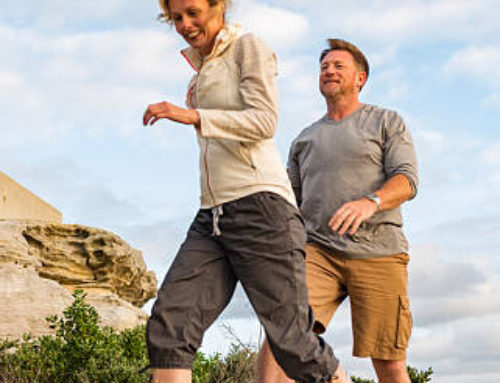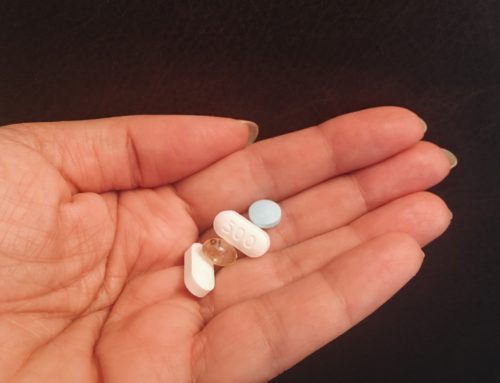Carolyn Ee is a GP researcher and registered Chinese medicine practitioner and was one of the first practicing medical doctors in Australia to gain dual qualifications in Chinese Medicine. She has significant clinical experience as an integrative GP and acupuncturist, she is a Senior Research Fellow at NICM Health Research Institute, Western Sydney University and is the current chair of the RACGP Integrative Medicine Specific Interest Group.
While Carolyn continues to practise as a GP in Sydney, in the last 10 years she has focused more on research with interest in models of care, particularly in integrated medicine and the areas of chronic disease, cardio-metabolic disease, as well as women’s health and mental health.
Carolyn sat down with Michael Marthick, Valion Health’s Managing Director to discuss her experience as a GP, her research into integrative medicine and the importance of prioritizing the whole person using a holistic model of care.
Michael: Can you tell me a little bit about your background?
Carolyn: I am a GP by background. I’ve done additional training in integrative medicine, particularly Chinese medicine acupuncture. I’m currently a registered Chinese medicine practitioner as well. I’ve gone more into research over the last 10 years. I have a PhD and am now an early career researcher/post-doctoral research fellow at Western Sydney University. I have a particular research interest in models of care, especially in integrative medicine, in the areas of chronic disease, cardio-metabolic disease, as well as women’s health and mental health.
Michael: Fantastic. What attracted you to working with the Western Sydney University team?
Carolyn: The team at NICM Health Research Institute are amazing researchers with great track records in integrative medicine research. It’s quite hard to find that level of expertise in Australia, and it’s a broad range of expertise as well. At NICM our research spans from nutraceuticals to mind-body therapies to Chinese medicine, both acupuncture and Chinese herbal medicine. There’s also bush medicine, medicinal cannabis – all across a range of methodologies. There’s preclinical, lab-based research, and we’re very heavy on clinical trials as well, and we have a growing track record in translational research/implementation science, and a lot of expertise in qualitative research as well. It seemed like the perfect place for me to go for my postdoctoral career.
Michael: Sounds fantastic and diverse as well. You’ve mentioned integrative medicine to me a few times. Can you give us a little bit of a background about what exactly that is and how it differs from, say, traditional medical models?
Carolyn: Sure. Integrative medicine is the combination of conventional Western medicine, as we think of it, together with evidence-based complementary therapies. Complementary therapies, I think of it as things that doctors don’t usually do, or don’t usually learn how to do in medical school. That ranges from the whole lot of nutraceuticals, herbal medicine, the traditional medical systems like Ayurveda and Chinese medicine, mind-body therapies, and body-based therapies as well, such as osteopathy and chiropractic.
Again, that’s a very diverse umbrella of therapies, but it’s a really interesting area to be doing research on because there’s a lot of community interest. They’re often very complex interventions. Acupuncture includes the consultation as well as the actual acupuncture. There is the diagnosis part of it as well. Yeah, it’s really, really challenging to research I think, and very much needed because there’s just not enough scientific knowledge on the efficacy of these therapies, although that’s growing rapidly.
Michael: Going back to your work as a GP, what trends are you seeing in mental health? Do you think we’re meeting the needs of patients?
Carolyn: Yeah, I guess the people that I see are coming to me with unmet needs where they feel that number one, that other doctors are taking a purely pharmaceutical approach to management, “Well, you’re depressed, therefore, here’s the script for an antidepressant.” That’s the extent of the mental healthcare that some people received. You and I probably know that that’s not really all the care that could and should be provided.
I think there is a great need to look at non-pharmacological approaches to provide comprehensive care. That’s for a few reasons; some people can’t tolerate antidepressants and also they’re of limited efficacy as well. Typically, a patient will say to me after being on antidepressants, “Well, I don’t feel a really deep sadness, but I just feel numb and that’s not really good either.” Sometimes they’re looking for an improved quality of life. They’re looking for a different approach and they’re looking for something that takes into account all of their health, physical as well as mental, and looking for, I guess, preventive approaches to wellbeing.
Michael: Are you seeing over the last five to 10 years, more mental health presentations, and do you think the statistics or incidents of anxiety and depression and other conditions are increasing?
Carolyn: I would say they’re increasing. I think over the past three to five years, I’ve felt as though the majority of my consultations have a mental health component in there. Whether or not I’m becoming more aware of the impact of mental health and physical health or whether it is increasing, I’m not quite sure, but we do know that definitely in 2020, there’s been a sharp increase in depression and anxiety, particularly in Victoria with the lockdown. Overall, I think it is becoming more of a problem and I’m seeing it a lot more in adolescents as well. There are lots of adolescents presenting with anxiety and depression, unfortunately.
Michael: A focus of one of your latest papers was around discussing a collaborative or team-based care model. Can you give us a bit of background around collaborative care?
Carolyn: Collaborative care is when a team of healthcare professionals work towards the same goals with, I guess, meeting patients’ needs. It’s a patient-centred approach with the team looking after the patient. I guess as a GP, I felt like I’ve always done collaborative care because we are the referrers to Allied Health and psychologists and specialists, but collaborative care takes a more systematic approach to this where there’s care coordination. One person is designated as the care coordinator. Now this might be the GP, but more often than not, it’s a nurse or a social worker.
To have good care, good collaborative care, there are other components that can help. Enhanced interprofessional communication, that’s important. With the advent of being able to share electronic medical records, that will help.
We’re starting to see more physical integration of practitioners. Having all practitioners under the one roof has been shown to be helpful in collaborative care. On the plus side, with the rise of telehealth this year, I think we can definitely achieve very effective virtual integration, taking away the need to all be under the same roof.
Michael: In terms of that model of care, there’s a few pillars; there is the traditional, conventional managed care, there’s the benefits of lifestyle interventions, there are the nutraceutical treatments, and then the mind-body therapies.
Carolyn: Yeah. We call this an integrative collaborative care model. It’s taking the conventional model of collaborative care, but really building in exactly those other components. We’ve got behaviour change and lifestyle interventions. The paper was particularly around people with depression and comorbidity, physical comorbidity. Obviously, lifestyle medicine can really be a powerful tool in managing both mental and physical comorbidities. Diet changes, particularly with having unprocessed, Mediterranean style diet can improve both your cardio-metabolic risk factors, as well as your symptoms of depression. Attending to sleep problems and improving physical activity, obviously, limiting alcohol and stopping smoking as well.
They’re really powerful tools because they can treat, I guess, two conditions with the one modality, and you can’t say that for pharmaceuticals. In fact, it’s more the opposite; you pop someone on an anti-psychotic for schizophrenia and you activate this cycle of weight gain and then eventually diabetes. Then you have to start them on Metformin. It becomes this cascade.
Some of the nutraceuticals have got some evidence of benefit as well. We talked about that in the paper, maybe omega-three fatty acids and some of the antioxidants and amino acids. Then we see mind-body therapies as being a really promising area that can have an impact on both physical and mental health, really promising evidence for treating anxiety and depression, as well as cardio-metabolic disorders, so possibly helpful with eating behaviours, as well as reducing weight and having a wide range of benefits in people with diabetes.
Not just the psychological benefits, of say, reduced depression in people with diabetes, but improved glycaemic control, improved blood pressure and improved lipids. Again, if you had a pill that did all of that, you’d be very successful.
Michael: Just focusing on the mind-body therapies, I imagine you’re talking about practices like yoga, yoga therapy, mindfulness, QiGong and Tai-Chi and those types of therapies and practices?
Carolyn: Yes, that’s correct. In particular, mindfulness meditation-based techniques. These can range from just popping on a mindfulness guided meditation to the more intensive forms of training, like a mindfulness-based stress reduction course and there’s also mindfulness based cognitive therapy, which goes for eight weeks. Then there’s yoga therapy, which as you know, is a little bit different to just yoga. Yoga therapy is delivered by a trained therapist who’s received some additional training on how to prescribe yoga activities to people with health conditions.
It’s just dealing with basic well-being and ensuring that we’re prioritising the whole person and then not forgetting about how they feel.
Michael: We forget about the whole person sometimes. Traditionally I think it can be quite siloed. How does this collaborative model work in practice?
Carolyn: Yeah. In an ideal world, they would sit down and have a fairly long first consultation where all the information is gathered about their condition and their treatments, and also their beliefs and preferences and an update as to where they’re at with cardio-metabolic monitoring as well, which is often something that we really need to do, particularly with people on anti-psychotics.
Then creating a comprehensive care plan. I imagine that’s something that is done at Allied Health, where there is a plan like, “Hey, there’s six sessions with this person or five sessions with that person,” or tweaking of medication. In this model, there may be the prescription of some nutraceuticals. The reason why this would take a long time is that there are a lot the checks and balances that need to happen. If you’re prescribing nutraceuticals, you want to check all the interactions and so on as well.
You want to gather a lot of information on lifestyle habits and social history and sleep so that you can start to help the person address all of that. Then one of the really key things in collaborative care is informed decision-making in a really, I guess, systematic approach to the use of guidelines and decision aids, if they’re available to help people decide what’s right for them.
Michael: Would that individual session, the first session be conducted in your model with the GP, so an integrated GP?
Carolyn: In our model would be with the nurse and the GP. I know in other care models, you have to include a naturopath and we don’t have one at the moment. It will be a nurse and a GP contributing to that. Obviously, the patient is part of the team as well.
Michael: Fantastic. I think it sounds great and there is real value in that type of approach
Carolyn: I think so. I think we’re becoming more comfortable with what works on them on telehealth and certainly mental health has been offered over telehealth much earlier than, I guess, non-mental health consultation. Psychiatrists have been doing a little bit of telehealth for quite a while. I can’t see why this can’t be applied through a virtual model given the right sort of platforms with information sharing, secure information sharing, and so on.
I guess the things to think about would be access to telehealth. Is that equal for everyone? Privacy issues as well, with mental health consultations. We need to be looking carefully at how to do this safely and appropriately.
Michael: Yeah, absolutely. Yeah. The governance and systems that support that type of model.
Carolyn: Yeah. It’s also just people having adequate internet access, if you want to do video calls. Not every patient has that. I’ve noticed that people need to be able to find a really private spot in their house, and sometimes you’re in the time of COVID, this has been really quite difficult for some patients to get a quiet spot away from everyone who’s also kind of stuck in the house with them, and to be talking about some very sensitive stuff that you might not want your roommates overhear or whatever. I think all of those things need to be thought through and addressed.
Michael: Yeah, absolutely. I think what’s appropriate for the right type of delivery for the right person at the right time.
Carolyn: I think so. Yeah. I think you’ve hit the nail on the head. Some people will prefer face-to-face and some others, telehealth just offers so many benefits because it’s convenient.
Michael: To just finally to kind of wrap up the paper that you just got published and peer reviewed and got published recently, what’s next for this type of model? I guess that was really a scoping and positioning paper to look at this is a good opportunity, and this is some research that validates this approach, are you looking at testing an actual model and practice?
Carolyn: Yes, we will be. Our academic integrative health care centre at Western Sydney University will be opened next year and so we’ll be implementing this model. It’s not just for mental health, although mental health is a big focus, but it will be for anyone who needs care. Then to evaluate the model, we’ll be using a patient registry. Anyone who provides consent will be followed up over a period of 18 to 24 months. We use standard patient reported outcome measures to look at improvements in physical and mental health over time.
Michael: Yeah. You hit the nail on the head. All right. Thanks so much, Carolyn and good luck with your research.



